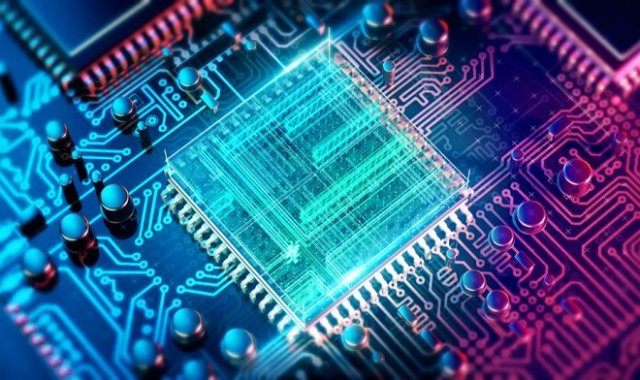The Russian 50-qubit quantum computer has successfully passed the test tests. This was reported to TASS at the Lebedev Physical Institute of the Russian Academy of Sciences (FIAN), noting that the successful completion of the tests paves the way for the creation of serial samples of quantum computers and their commercial use.
The Lebedev Physical Institute of the Russian Academy of Sciences (FIAN) has announced the successful testing of a quantum computing device. This is Russia's first 50-qubit computer built using cold ion technology, according to a statement on the FIAN website.
Scientists have managed to solve the problem of increasing the number of qubits without losing the quality and speed of operations. The computer is not inferior to its analogues in its characteristics, but surpasses them in a number of parameters, representatives of the institute noted.
Moreover, according to the director of the FIAN, Academician of the Russian Academy of Sciences Nikolai Kolachevsky, this is not just an experimental prototype, but "a full-fledged platform for conducting research and solving problems."
It is planned to develop the system in the direction of increasing the accuracy of operations and coherence time (consistency of quantum oscillatory processes). The issue of device scaling and mass production is also being studied.
The development was carried out within the framework of the roadmap for the development of the high-tech field of Quantum computing, approved by the Government in 2020 and setting as one of the goals the creation of a quantum computer with a capacity of at least 50 qubits by the end of 2024.
During the tests, the scientists used tasks that will allow real quantum calculations in the future. They implemented Grover's algorithms, which involve searching through an unordered database; calculated the structure of several molecules; and simulated a number of dynamic systems.
In one of the experiments, FIAN specialists trained a neural network to sort handwritten images of numbers, which can be used, for example, to quickly search for new effective molecules, face recognition, DNA verification, etc.
"During the testing, the key characteristics of the computer were investigated — the reliability of single—qubit and double-qubit operations, as well as the coherence time - the coordinated operation of qudits before their quantum state is destroyed," said Ilya Zalivako, a researcher at the FIAN.
In the Russian computer, scientists use a chain of 25 ytterbium ions (1⁷1yb⁺) cooled to almost absolute zero. One of the features of the domestic approach is the use of anchors. These are systems in which an ion can simultaneously be in four states rather than two, as in qubits, which allows it to store and process more information, the developers explained.
Qudits (ions with more than two qubits) can be in three (coutrits), four (cuquartes), five (cuquints) or more states. These states make it possible to encode data more densely in physical media, run more complex and complex quantum algorithms, and increase the computing power and speed of a quantum processor. Now, most of the research on quantum operations is focused on qubits.
The most advanced quantum computing systems face a double challenge — how to increase the number of qubits and reduce the error rate, as the qubits interact with the environment, which is a source of noise.
Russian scientists from MIPT launched the first Russian 12-qubit quantum processor in January 2024. In February 2024, Rosatom announced the creation of a 20-qubit quantum computer based on an ion platform and a 25-qubit one based on an atomic one.
In December 2024, scientists from the Physics Department of Moscow University and the Russian Quantum Center presented Russia's first prototype of a 50-qubit quantum computer based on single neutral rubidium atoms.
In the fall of 2024, the media called Google's 105-qubit Willow chip a "breakthrough" in quantum computing. The California-based startup Atom Computing managed to connect 1,18,000 qubits in October 2023, which was more than double IBM's previous achievement of 433 qubits in November 2022.

